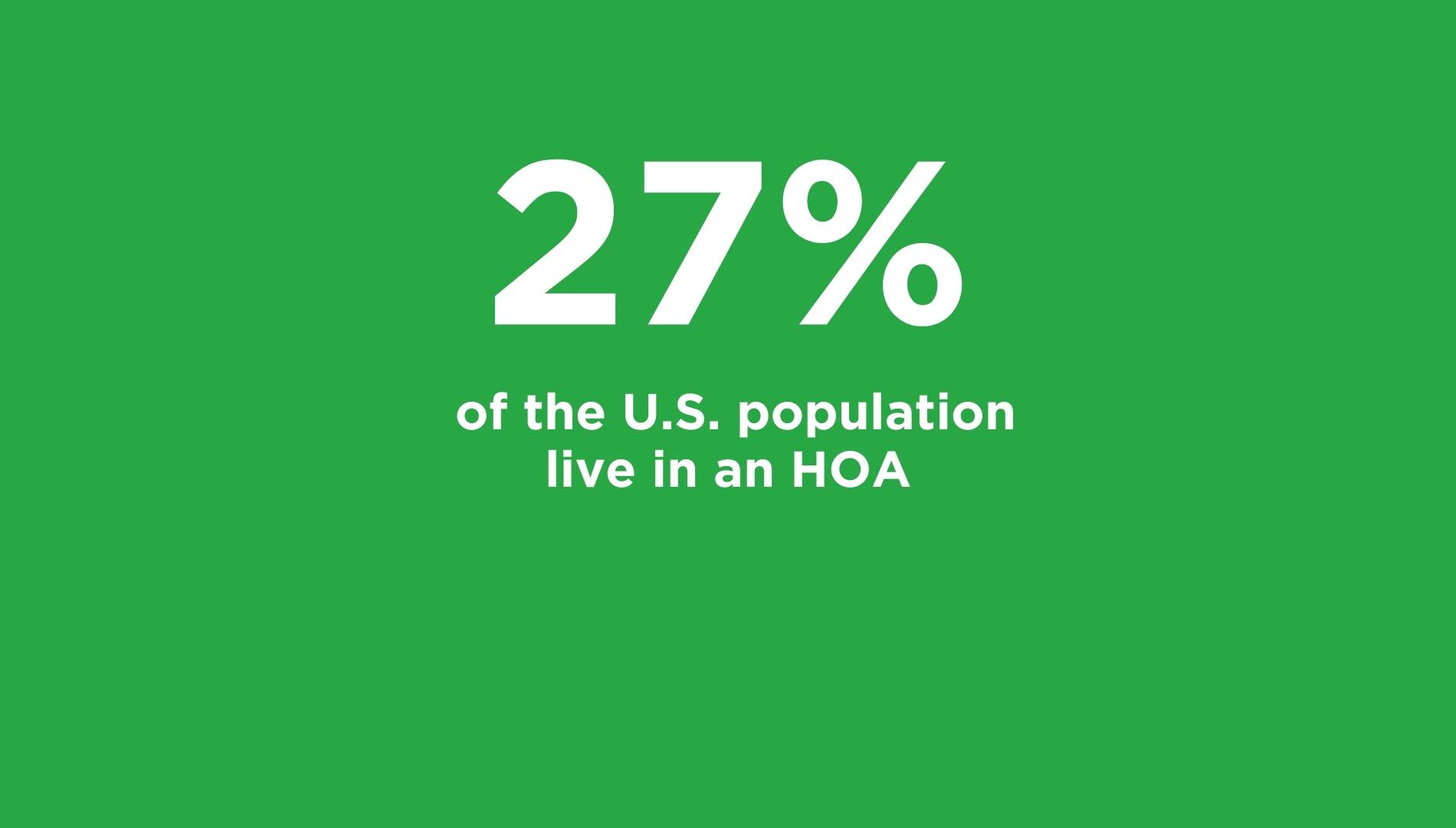Ever wondered about those fees and rules that come with living in a community? They're all part of what's known as a Homeowners Association (HOA). But what exactly does that mean and why should you care? Let's dive into the world of HOA management.
Picture this: in the U.S., there are over 358,000 HOAs managing a whopping 74.2 million residents. That's a staggering 35 times increase from 1970 to 2020! These numbers aren't just stats; they represent the significant impact HOAs have on the housing market and millions of residents nationwide.
About 25% to 27% of the U.S. population resides in HOA communities. That's a lot of neighbors sharing common spaces!

Now, let's talk dollars. The estimated value of time contributed by HOA boards and members is a jaw-dropping $2.908 billion. That's some serious community dedication! But with great community power comes financial responsibility – about 91% of HOAs have noticed unexpected expense increases, potentially leading to fee hikes.
So, why does all this matter? Because HOAs aren't just about keeping lawns tidy and pool water sparkling. They're about preserving the dream communities we all fell in love with. Understanding HOA management isn't just about following rules; it's about protecting your investment and shaping your living environment.
So, let's embark on this journey together. Are you ready to unravel the mystery of HOA management?
Get Your Free HOA Management Screening Checklist Today!
Are you part of a Homeowners Association looking to streamline your management processes? We've got just the tool for you! Download our comprehensive HOA Management Company Screening Checklist and take the first step towards more efficient, effective, and organized community management.
What is an HOA?
The Basics of Homeowners Associations
The Basics of Homeowners Associations
Ever wondered how some neighborhoods stay so picture-perfect? Enter the Homeowners Association (HOA) – the behind-the-scenes hero of community management. But what exactly is an HOA, and why does it matter?
An HOA is like the backbone of a residential community, ensuring everything runs smoothly and standards are upheld. You'll find them in planned communities like condos, townhomes, and single-family homes. Essentially, if you're sharing common areas with neighbors, there's likely an HOA involved.
But what's the purpose? HOAs go beyond lawn care and pool maintenance; they're all about maintaining and boosting property values. By enforcing rules, they keep the community looking cohesive and appealing. Think of them as the guardians of your neighborhood's vibe.
Plus, HOAs foster community spirit and ensure shared spaces are well-maintained and accessible to all. They strike a balance between individual rights and community and harmony, making sure your home remains a place you're proud of.
By understanding HOAs, homeowners can better grasp their community's value. It's not just about rules; it's about protecting your investment and preserving your neighborhood's charm.
Understanding HOA Management
Roles and Responsibilities
So, who's in charge of all this? HOA management can vary – some are run by homeowner volunteers, while others enlist hoa property management companies. Either way, they play a crucial role in enforcing rules, managing finances, and ensuring your investment is secure.
At the heart of HOA management are the boards – elected homeowners who make vital decisions for the community. They navigate their responsibilities with the help of HOA bylaws and covenants, ensuring governance is transparent and fair.
In essence, HOA management is about more than just keeping the peace; it's about fostering a sense of community and preserving your slice of paradise. Whether it's a cozy townhome or a sprawling estate, living in an HOA-managed community means being part of something bigger – a collective effort to maintain your home's quality and integrity.
The Financials of HOA Management
Understanding Fees and Assessments
HOA fees are like the community's financial backbone, but what exactly do they cover, and why are they so important? Well, these fees, paid regularly by homeowners, cover the maintenance and improvement of shared spaces and amenities. From landscaping to pool upkeep and snow removal, they keep your community looking great and, in turn, help maintain or even boost property values over time. HOA Management Companies charge various fees for their services, typically ranging from $10 to $20 per unit per month, depending on the type of services offered, the size of the community, and the location. More reputable companies with greater services or perks may charge as much as $20 to $50 per unit per month, and fees can vary based on the size and exact services provided.
But what about those surprise expenses or big projects? That's where special assessments come in. Unlike regular fees, special assessments are one-time charges to cover unexpected costs or major projects not in the annual budget. For example, if the community pool needs a sudden overhaul, a special assessment might be added to cover the bill.On top of that, a well-run HOA sets up reserve funds – essentially, a savings account for future repairs and replacements of community assets. It's like preparing for rainy days, ensuring the community stays in tip-top shape.
Budgets and Financial Planning
Budgets and Financial Planning Planning an HOA budget is no walk in the park. It means predicting expenses for the year ahead, setting aside enough reserves, and figuring out the right fees to cover it all without overburdening homeowners. Financial health is key for a community's well-being. A solid budget means the community can maintain its amenities and properties, keeping residents happy and protecting their investments.
Transparency is also crucial. HOA boards need to keep homeowners in the loop about where their money goes and why certain financial decisions are made. By involving the community in the process, trust is built, and everyone can work together for the community's benefit.
In a nutshell, managing an HOA's finances is vital for its success. With careful budgeting, fair fees and assessments, and transparent planning, an HOA ensures the community remains a great place to live for years to come.
Navigating HOA Meetings and Voting
How HOA Meetings Work
HOA meetings are essential for community management, serving as a platform for decision-making, information exchange, and resident involvement. These meetings, held regularly, keep homeowners informed about the HOA's activities, finances, and upcoming projects. They're where the board discusses budgets, addresses community issues, and plans for the future. Attending these meetings is crucial; they give homeowners a voice and a chance to shape their neighborhood's governance.
Voting Rights and Procedures
One of the most significant rights homeowners have in an HOA is the right to vote. It allows them to influence decisions on board elections, major expenses, or changes to bylaws. Voting procedures usually require a quorum to ensure decisions reflect the community's will. Homeowners can vote in person, by proxy, or through mail-in ballots, depending on their HOA's bylaws. Understanding meetings and voting empowers homeowners to actively participate in their community's governance, shaping its direction for the better.
The Role of Homeowners
Rights and Responsibilities
So, you've settled into your HOA community, but what are your rights and responsibilities? Let's break it down. As a homeowner, you have rights designed to protect your interests, like accessing amenities and voting in HOA elections. But you also have responsibilities, such as following HOA rules and paying dues on time. By understanding and fulfilling these obligations, you contribute to a thriving community everyone can enjoy.
Engagement and Participation
Now that you know your rights and responsibilities, let's talk about getting involved. Attend HOA meetings to stay informed and voice concerns. Consider serving on the board to shape your community's future directly. If that's not your style, join committees or simply be a good neighbor. Your involvement fosters a sense of belonging and makes your community a better place for everyone.
Resolving Disputes in an HOA
Common Issues and Complaints
Disputes in an HOA community are common, from disagreements over rules to noise complaints. These conflicts often arise due to misunderstandings or differing interpretations of HOA regulations. Resolving them requires open communication and compromise.
Dispute Resolution
To address conflicts effectively, start with calm, respectful conversation. If that fails, escalate the issue to the HOA board or management company. Most HOAs have formal dispute resolution processes in place. Litigation should be a last resort, as it can be costly and divisive. The goal is to find a solution that maintains community harmony.
In conclusion, disputes within an HOA can be resolved through communication, compromise, and adherence to established processes. By understanding their role, rights, and responsibilities, homeowners can contribute to a thriving community where everyone feels at home.Conclusion
In conclusion, while disputes may occasionally arise within an HOA community, they can typically be resolved through effective communication, compromise, and adherence to established dispute resolution processes. By understanding their rights and responsibilities and actively engaging with their HOA, homeowners can contribute to a harmonious and thriving community environment. Remember, at the heart of it all is a shared goal: to create a place we're all proud to call home.
Sources
- DoorLoop. (n.d.). HOA Statistics. Retrieved from https://www.doorloop.com/blog/hoa-statistics
- This Old House. (n.d.). HOA Statistics. Retrieved from https://www.thisoldhouse.com/storage-organization/reviews/hoa-statistics
- RubyHome. (n.d.). HOA Stats. Retrieved from https://www.rubyhome.com/blog/hoa-stats/
- iPropertyManagement. (n.d.). HOA Statistics. Retrieved from https://ipropertymanagement.com/research/hoa-statistics
- KRJ Cares. (n.d.). Comprehensive HOAs Statistics and Trends Report for 2023. Retrieved from https://krjcares.com/comprehensive-hoas-statistics-and-trends-report-for-2023/
- Investopedia. (n.d.). Homeowners Association Fee (HOA). Retrieved from https://www.investopedia.com/terms/h/homeowners-association-fee-hoa.asp
- Bankrate. (n.d.). HOA Fees. Retrieved from https://www.bankrate.com/real-estate/hoa-fees/
- Joybird. (n.d.). Average HOA Fees Across the U.S. Retrieved from https://joybird.com/blog/average-hoa-fees-across-the-us/
Get Your Free HOA Management Screening Checklist Today!
Are you part of a Homeowners Association looking to streamline your management processes? We've got just the tool for you! Download our comprehensive HOA Management Company Screening Checklist and take the first step towards more efficient, effective, and organized community management.








